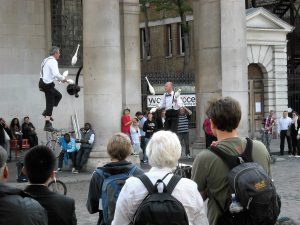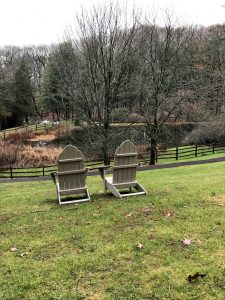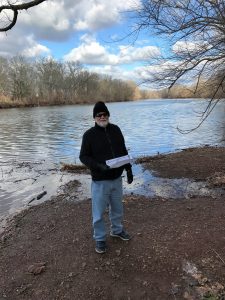 John 3:6
John 3:6
That which is born of the flesh is flesh, and that which is born of the Spirit is spirit (ESV).
Last in our series of articles about the Holy Spirit, we considered from the Scriptures our need of the Holy Spirit’s work. We saw that it was necessary to lift us from a focus on religious performance to a proper evaluation of Jesus Christ as Lord. This is necessary, because on the most basic level of our being, humans naturally are dead in sin. We saw five characteristics of spiritual deadness, and how that necessarily involves spiritual inability: the eight spiritual actions that fallen, natural humans cannot do.
If that was all that the Bible said, we should all weep in despair. But God also tells us in his word that there is good news. What we cannot do for salvation, God has done in Christ, and the Holy Spirit has been sent to apply the benefits of Christ’s saving work to his people. In other words, what we must now come to understand is regeneration or the effective grace of the Holy Spirit. The Father planned salvation, the Son purchased it, but it is the Holy Spirit who applies what was planned and purchased to our hearts.
The doctrine of regeneration is always important to the church. Listen to the following words of Thomas Goodwin, president of Magdalen College, Oxford University, spoken in the early 1650s.
“Let us see…this necessity of the new birth. We are fallen into times in which the thing and doctrine of it is forgotten and laid aside, in which there are multitudes of professors, but few converts, many that seem to walk in the way to life, that never came in at the strait gate. There is a zeal amongst us to advance this or that reformation in religion, and it hath been all the cry. But, my brethren, where is regeneration called for or regarded? We have seen the greatest outward alterations that ever were in any age, kingdoms turned and converted into commonwealths, the power of heaven and earth shaken: but men, although they turn this way and that, from this or that way, from this opinion to that, yet their hearts generally turn upon the same hinges they were hung on when they came into the world. In this University of Oxford we have had puttings out and puttings in, but where is putting off of the old nature and putting on the new? Where do we hear (as we had wont) of souls carrying home the Holy Ghost from sermons, of their being changed and altered, and made new, and of students running home weeping to their studies, crying out, ‘What shall I do to be saved?’ This was heretofore a wonted [familiar] cry. Conversion is the only standing miracle in the church, but I may truly say these miracles are well nigh ceased; we hear of few of them” (Thomas Goodwin, The Work of the Holy Spirit in Our Salvation, p. 157). With slight modification, we could write the same words today. We need to have the same burden again. As Jesus said, “You should not be surprised at my saying, ‘You must be born again.’”
What is the new birth from above? First of all, it involves a washing and renewal. He saved us, not because of works done by us in righteousness, but according to his own mercy, by the washing of regeneration and renewal of the Holy Spirit (Titus 3:5). When the Holy Spirit enters a human heart to cause the new birth, he encounters a cesspool of corruption that is deeply offensive to him. For this reason, he immediately performs a washing of the soul to remove the pollution of sin he encounters. At the same time, he renews the heart or causes spiritual life to begin. Where sin once reigned in death, now grace reigns in righteousness to bring eternal life through Jesus Christ our Lord (Romans 5:21). We might say that this corrects our negative condition, but what of a change in the positive sense? This the Spirit of God also produces in the new birth. Next time, we will consider the newness of life he creates.
Grace and peace, David

 Luke 9:57-62
Luke 9:57-62 Psalm 17:3-5
Psalm 17:3-5 1 Samuel 7:2-13
1 Samuel 7:2-13 1 Samuel 7:2-13
1 Samuel 7:2-13 2 Timothy 1:13
2 Timothy 1:13 Leviticus 9
Leviticus 9 Matthew 6:34
Matthew 6:34 Ephesians 1:16-19
Ephesians 1:16-19 Ephesians 4:1
Ephesians 4:1